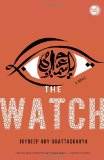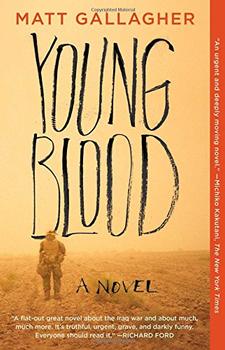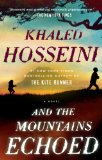Summary | Excerpt | Reviews | Beyond the book | Read-Alikes | Genres & Themes | Author Bio

A Novel
by Joydeep Roy-BhattacharyaUnit cohesion - the bond between soldiers that reinforces their dedication to their mission and each other - is a goal of all military leaders. But desire and reality don't always converge. The collection of disparate soldiers in Joydeep Roy-Bhattacharya's novel The Watch is recognizable to many: disenchanted with their mission, they question their leader's decisions. But when a legless woman appears on the perimeter of the base demanding the return of her brother's body, she becomes the unlikely catalyst for an evolution towards a state of unity. Stranger things have happened in war. Never mind that this story has been told before; Roy-Bhattacharya's offering is based on the Greek classic Antigone (see 'Beyond the Book'), with perhaps an unintended nod to Herman Wouk's The Caine Mutiny, but his rendering is as disturbing as Antigone and stands as an original itself.
Nizam, an Afghan woman who loses her legs to the "bomb that decimated [her] family," arrives outside a remote army outpost to collect her brother's body for a proper burial. Her brother, who wore a black turban that identified him as a "Sayyid, a descendant of the Prophet Muhammed," led a devastating attack on the base. Nizam speaks with a logic that confounds those who head the war and who seek to use her brother's body as an example to other would-be mujahideen. Her's is a basic and guttural undertaking, and the wisdom she displays is greater than that of all the generals and politicians combined and is more than the soldiers are capable of responding to.
The story is told through a series of first-person narratives, a ploy that breaks the novel into sections by Nizam, the soldiers, and their Tajik interpreter. Each of them relates information about their time before arriving at the desolate outpost; all hate the Talib, a simple point that they don't seem to understand about each other; and none of them are allowed to complete their story before another character is introduced to continue the thread. Through that narrative structure, Roy-Bhattacharya leads the reader down a path of discovery and demonstrates how misunderstanding can be perpetuated in what is ultimately a microcosm of the war itself.
There is no protagonist per se. Each of the narrators assumes the role when relating their individual tales. The story revolves around Nizam who is initially feared by the soldiers. She struggles to maintain her virtue in plain sight of them, yet still she tries to "picture how they must see [her] from their side." Her narrative provides readers with a perspective that is denied to the soldiers, and it succinctly situates readers as her surrogate to witness "their side."
All the characters are brought to life through their first-person musings - their backstories and points of view are defined through reminiscences as well as dialog with each other. Dream sequences that meld into reality, and vice versa, create a surreal atmosphere that crosses from the conscious world to the unconscious, mimicking the blurred line between life and death in combat.
The Watch is a tale that illustrates the futility of war at its most basic level. It's a tragedy, as is Antigone, but then again, what war story isn't? Sophocles offers thinly veiled criticisms of war in Antigone - it's amazing that those criticisms are still relevant and can still define a work of modern fiction.
![]() This review was originally published in The BookBrowse Review in June 2012, and has been updated for the
March 2013 edition.
Click here to go to this issue.
This review was originally published in The BookBrowse Review in June 2012, and has been updated for the
March 2013 edition.
Click here to go to this issue.

If you liked The Watch, try these:

by Matt Gallagher
Published 2016
Jarhead meets Redeployment in a suspenseful and smart fiction debut that has been called "thrilling, tragic, and darkly funny" by National Book Award-winning author Phil Klay.

by Khaled Hosseini
Published 2014
Khaled Hosseini has written a new novel about how we love, how we take care of one another, and how the choices we make resonate through generations
Your guide toexceptional books
BookBrowse seeks out and recommends the best in contemporary fiction and nonfiction—books that not only engage and entertain but also deepen our understanding of ourselves and the world around us.